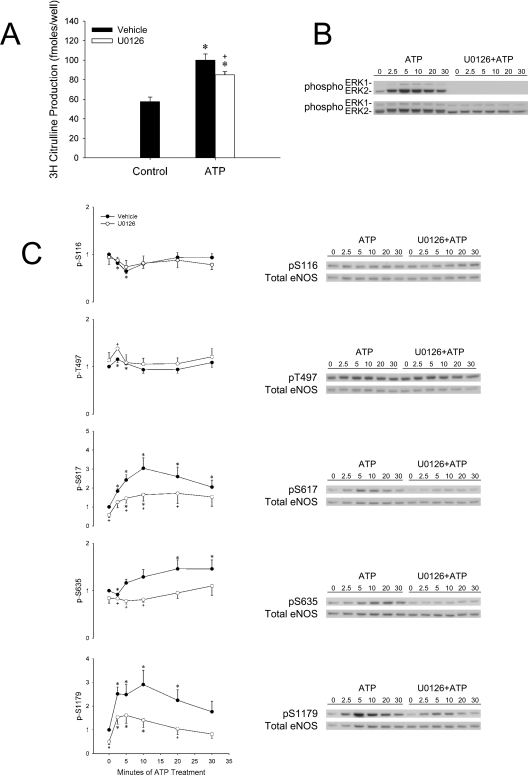Figure 3. U0126 decreases ATP-stimulated eNOS activity in COS-7 cells and decreases pS617, pS635 and pS1179.
(A) COS-7 cells were plated on to 100 mm dishes and incubated overnight at 37 °C in 10% FBS–DMEM. Cells were transfected with 6 μg of pBK-CMV-oeNOS. After 2 days of eNOS expression, cells were trypsinized and subcultured to 12-well plates. After plating for 8 h, cells were serum-withdrawn in 0.01% BSA–DMEM overnight. On the day of the experiment, the cells were rinsed with and incubated in Krebs buffer for 1 h at 37 °C and then [3H]Arginine was added for a 30 min incubation. Halfway through this incubation, 10 μM U0126 or vehicle was added. Cells were treated with vehicle or 10 μM ATP for 30 min. The results are expressed as means±S.E.M. for femtomoles of [3H]Citrulline and represent n=3 experiments where each treatment was performed in triplicate (+P<0.05 compared with ATP alone; *P<0.05 compared with control). (B, C) Ovine eNOS-transfected COS-7 cells (60 mm dishes) were serum-starved overnight in 0.01% BSA–DMEM. Cells were treated with 10 μM U0126 or vehicle for 15 min and then stimulated with vehicle or 10 μM ATP for 0–30 min. Whole cell lysates were collected and SDS/PAGE and Western blotting were performed with phospho-specific antibodies for ERK1/2 (B) and eNOS (pS116, pT497, pS617, pS635 and pS1179) (C) and also phosphorylation-state-independent antibodies to ERK1/2 and eNOS (+P<0.05 compared with A23187 alone; *P<0.05 compared with control).

